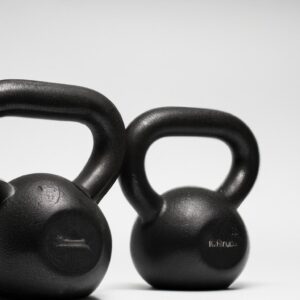Beginner fitness routines

### Beginner Fitness Routines: Your Path to Health and Wellness
Embarking on a fitness journey can be both exciting and daunting, especially for beginners. The path to improved health and wellness is unique for everyone, but the foundational principles remain consistent. Whether you aim to lose weight, build muscle, or simply feel better in your daily life, establishing a fitness routine is crucial. In this blog post, we’ll explore beginner fitness routines, including essential exercise tips, nutritional guidance, and the myriad health benefits that come with regular physical activity.
#### Understanding Fitness Routines
A fitness routine is a structured plan that outlines your exercise and physical activity commitments. For beginners, the primary goal should be to create a balanced routine that incorporates various forms of exercise, including cardiovascular workouts, strength training, and flexibility exercises. This diverse approach helps in building overall fitness and reduces the risk of injury.
### Exercise Tips for Beginners
1. **Start Slow**: If you are new to exercise, it’s essential to ease into your routine. Begin with low-impact activities such as walking, cycling, or swimming. Aim for at least 20-30 minutes of exercise, three to four times a week.
2. **Set Realistic Goals**: Setting achievable goals is crucial for maintaining motivation. Instead of aiming for drastic changes, focus on small, incremental improvements. For instance, aim to walk for an additional five minutes each week or gradually increase the weight you lift in strength training.
3. **Incorporate Variety**: Engaging in a variety of exercises not only keeps things interesting but also works different muscle groups. Consider including cardio workouts (like jogging or dancing), strength training (using bodyweight, resistance bands, or weights), and flexibility exercises (like yoga or stretching).
4. **Listen to Your Body**: Pay attention to how your body responds to different workouts. It’s normal to feel some soreness, but sharp pain is a warning sign to stop. Rest and recovery are integral parts of any fitness routine, so don’t hesitate to take breaks when needed.
5. **Find a Workout Buddy**: Exercising with a friend can increase accountability and make workouts more enjoyable. Whether it’s a brisk walk or a group fitness class, having a partner can motivate you to stick with your routine.
### Nutrition: Fueling Your Fitness Journey
Nutrition plays a vital role in supporting your fitness goals. Here are some essential tips for beginner nutrition:
1. **Balanced Diet**: Focus on a diet rich in whole, unprocessed foods. Incorporate plenty of fruits, vegetables, whole grains, lean proteins, and healthy fats. This balanced approach provides the nutrients necessary for energy and recovery.
2. **Stay Hydrated**: Water is crucial for overall health and performance. Aim to drink at least 8-10 glasses of water daily, increasing your intake during exercise. Hydration helps maintain energy levels and aids in recovery.
3. **Pre- and Post-Workout Nutrition**: Eating a small snack before your workout can provide the energy needed for optimal performance. Opt for a combination of carbohydrates and protein, such as a banana with peanut butter or a yogurt with berries. After exercising, aim to consume a meal or snack that includes protein and carbohydrates to aid recovery.
4. **Mindful Eating**: Pay attention to your eating habits. Avoid distractions during meals, such as watching TV or scrolling through your phone, and focus on enjoying your food. This practice can help you recognize hunger cues and prevent overeating.
### Health Benefits of Regular Exercise
Engaging in a beginner fitness routine offers numerous health benefits, including:
1. **Improved Cardiovascular Health**: Regular exercise strengthens the heart and improves circulation, reducing the risk of heart disease and hypertension.
2. **Enhanced Mental Health**: Physical activity releases endorphins, the body’s natural mood lifters. Exercise can help alleviate symptoms of anxiety and depression, contributing to overall emotional well-being.
3. **Weight Management**: A well-rounded fitness routine















Post Comment